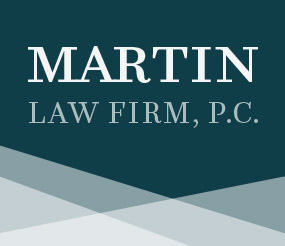Debt collection lawyers have a big advantage over debt collection agencies in their ability to collect outstanding debts. Lawyers can sue the debtors and obtain a money judgment.
Once a judgment is obtained, the debtor has two choices:
1) pay the amount of the judgment or ;
2) do nothing.
If the debtor does nothing, the debt collection lawyer must take steps to discover assets owned by the debtor and then use those assets to satisfy the judgment. Discovering assets may be difficult; however, in today’s digital world, it is becoming easier. Technology coupled with traditional litigation tools, give debt collection lawyers an advantage that they never had before.
Social Media
Facebook, LinkedIn, Twitter, YouTube, Instagram, etc. give debt collection lawyers a good source of information on the debtor. Individual debtors may post information about their change of residence, a new job, a new car, an extravagant vacation or a new home. Business debtors may post information about their inventory, acquisitions and sales.
Westlaw/Lexis Nexus
Lawyers use vendors such as Westlaw or Lexis Nexus for case law research; however, these on-line resources provide public records services that can prove invaluable. Public records can include the debtor’s contact information, credit accounts, judgments and liens. All this information can be pieced together to determine a debtor’s ability to pay and to determine the potential sources of the debtor’s income or assets.
Civil Docket Searches
Many counties throughout the Commonwealth allow public access to civil cases. Lawyers can search these docket systems by name. These searches can reveal whether the debtor is a plaintiff or defendant in other civil cases. These searches can confirm whether the debtor is being sued by other creditors and the number of outstanding judgments or liens that may exist.
County Tax Records/Recorder of Deeds
Online public access to real estate and tax records is an easy way to determine whether the debtor owns real estate.
PA Department of State/Corporation Bureau
Lawyers can search fictitious name and corporate filings, including UCC-1 filings. This can help reveal businesses that the debtor may have an interest in or whether a business could be subject to a charging order. UCC-1 filings can be used to find the names of secured parties and how much the debtor owes them. It can also give the lawyer an idea of the assets, equipment and inventory of the debtor.
PENNDOT
The Pennsylvania Department of Transportation maintains records regarding ownership, liens and encumbrances upon motor vehicles. PENNDOT’s records can confirm whether a vehicle is owned by the debtor or leased.
Discovery in Aid of Execution
After entry of a judgment, debt collection lawyers can take the testimony of any person either by deposition or written interrogatories for the purpose of discovery of assets of the debtor. If the deponent is a non-party, then a subpoena can be used to compel the testimony. Subpoenas can also be used by collection attorneys on other creditors of the debtor to obtain information about the debtor’s assets. For example, an information subpoena can be served on a mortgage company to determine where the debtor’s payments are coming from.
Obtaining a judgment against a debtor is only half the battle. To be successful in any collection matter, a lawyer must focus on finding assets, determining their worth, and then liquidating those assets to satisfy the judgment.
